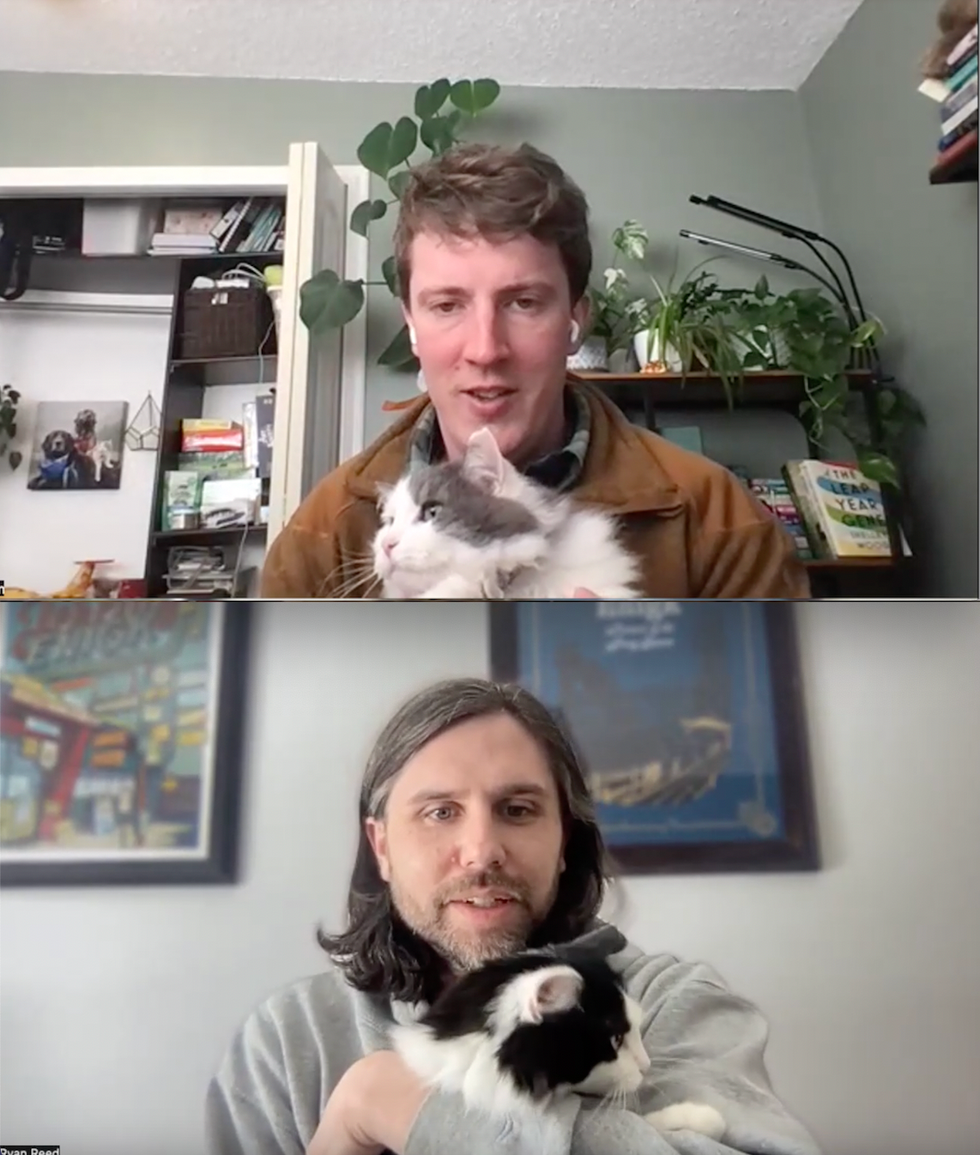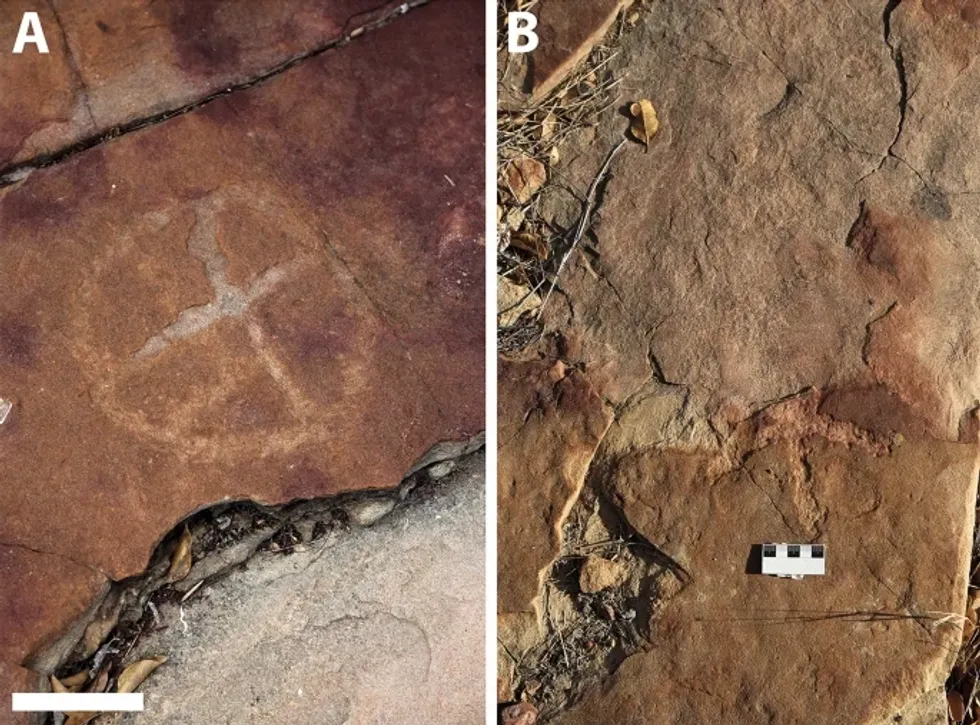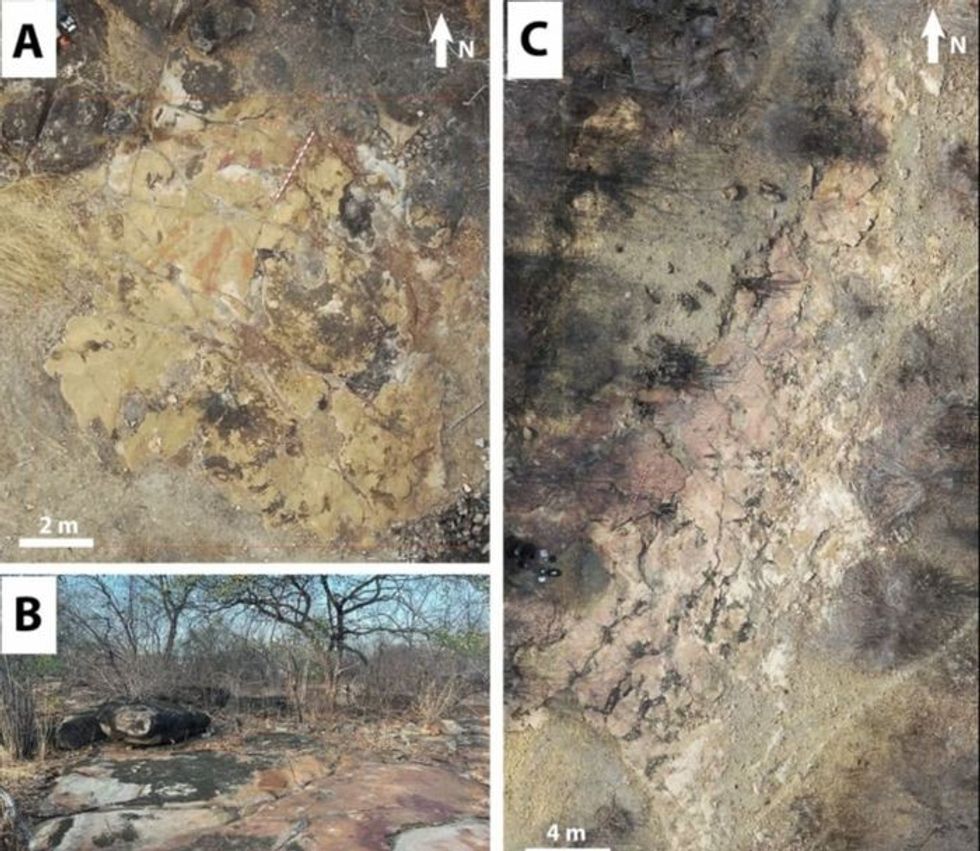Over on the /AskReddit forum, one frustrated citizen got down to brass tacks. In today's world, it's easy to feel hopeless when it comes to the herculean challenges posed by climate change. There's so much to do and it feels like we're constantly barraged with negative warnings that even our most valiant efforts might be in vain.
So, virtually throwing their arms up in air, Reddit user "ExoticFailure" simply begged for an answer: "How do we save this fucking planet?"
In less than five hours, more than 20,000 people liked the question with hundreds more adding in their own comments, questions, and venting their frustrations. But one incredibly thoughtful and detailed response has quickly elevated itself above the chatter. An anonymous user writing under the handle "m4ybe" offered up a detailed, seven-point response that instantly caught fire. While it's unclear if these solutions are backed by science or possible, they sound like a step in the right direction.
Here is their response in its entirety:
RELATED: West Virginia coal miners are getting retrained as beekeepers to boost the economy and the environment
1) Completely overhaul agriculture
As it stands, our agriculture system relies heavily on supplementing soil with nitrogen, potassium, and phosphorus primarily, with many other trace minerals supplemented as a secondary pass. This process destroys the rhizosphere, which is where the microbial life which plants depend on live. As this region of the Earth is destroyed, soil becomes dusty, dry, and washes away easily. The lost topsoil then flows into the ocean where it causes large algae blooms which then become deadzones where nothing can live. This destroys plankton, which are the primary producers of oxygen on the planet.
By enhancing and feeding microbial life in the soil and treating soil as the foundation of farming, we can get a greater yield without the topsoil loss and rhizospheric holocaust. Many regenerative agriculture and no-till farms are proving this, and many other natural farming methods are supplementing these methods with ways to increase yields further in a sustainable way. These methods also fix carbon, which goes a long way to reversing the emissions problem we've landed ourselves in.
2) Eliminate any non-recyclable single-use packaging or product
We're aware of the alternatives. Hemp makes better plastic, which is biodegradable. We can easily start there, and the process of planting hemp instead of commercial soy and corn would go a long way to fixing the soil, as hemp naturally fixes large amounts of carbon in the soil with its net-like roots. There's no reason other than greed and addiction to the status quo that this isn't happening. Any current plastic producer can easily be retrofit to produce plastic with hemp instead of petrochemicals.
RELATED: Nonprofit plants its 250 millionth tree in order to help heal the planet
3) Make a World War II-style push to seriously address energy production
Thorium-salt based nuclear reactors, fusion research, geothermal, micro-hydro vortex generating turbines, tidal energy, wind energy, solar energy in that order. We also need to research and establish safer, more sustainable ways to store our energy. This problem isn't discussed as often, but lithium is an unsustainable way to store energy. We need to ideally come up with a method that utilizes carbon and hydrogen to capture and store energy as efficiently as possible.
4) Close any waste loops
From toilets to nuclear waste, methods must be established to convert waste to useful products as opposed to treating it as an afterthought. Nuclear waste can be turned into very effective batteries. Human waste can be turned into *INCREDIBLY* rich compost. These things must become the norm instead of the exception.
5) Utilize known and effective alternative building materials
Cob, Rammed Earth, Adobe, Strawbale, Earth Bag, Aircrete, and others must be used instead of traditional building materials. These materials are freely available, sustainable, and vastly reduce the amount of waste produced by building a house. Additional materials like hempcrete and mycobricks can be used to replace standard insulation and are vastly more effective. These materials all are more resistant to fire, earthquakes, and many other potential destructive forces than standard architecture is. These materials also have the potential to be utilized with 3D printing building robots.
6) Reduce protein intake, increase sustainable protein production
This is related to the first point, and to be clear, this is not a rallying cry to tell everyone to be vegan. Our current methods for producing beef, pork, chicken, and fish are all deeply unsustainable. Factory livestock operations produce the pollution equivalent of a city on as little as an acre's worth of space. Cattle farmed in this way produce massive amounts of methane which contributes ~15% of the atmospheric carbon. Fish are overfished to the point where the oceans may be devoid of fish by as soon as 2030.
There are known, effective alternatives to these methodologies. Alan Savory's ranching produces healthier cattle and dairy products while simultaneously regenerating prairie lands. Free range chickens make excellent pest control on polyculture farms. Pigs make excellent manure and function as nature's garbage disposals. Aquaponics can sustainably grow salmon, trout, jade perch, tilapia, and a number of other fish while SIMULTANEOUSLY growing crops in a density much higher than traditional agriculture.
Many of these methods can't produce protein in quite the same density as our current standards (aside from aquaponics, which can do it much better), so our diets would need to change to incorporate less, or at least different, sources of animal protein. If safe, farmed fish (which is by its nature devoid of mercury) replaced burgers, we would be healthier, less fat, and increase the demand for sustainable alternatives.
7) Subsidize and incentivize birth control
The single most effective thing you can do to reduce the human burden placed on the planet is have one less child. By incentivizing birth control universally (the universal aspect is critical), we can reduce the human population. If first world nations were half as populated as they are today, our waste output would plummet. If the entire world were less populated, the amount of human environmental intervention and manipulation would plummet. Re-wilding the planet is an extremely effective method to reverse the damages we've caused to biodiversity, the atmosphere, and the rhizosphere. By incentivizing and subsidizing birth control, people would have financial incentives and zero barriers to reduce the amount of children they have. A gradual population reduction over the course of a few generations to half the world's current population would go a VERY far way toward reducing the burden we place on the planet.
These incentives must be UNIVERSAL otherwise you get into eugenics territory, which is no good.
















 Let us all bow before Gary, the Internet's most adventurous feline. Photo credit: James Eastham
Let us all bow before Gary, the Internet's most adventurous feline. Photo credit: James Eastham Gary the Cat enjoys some paddling. Photo credit: James Eastham
Gary the Cat enjoys some paddling. Photo credit: James Eastham James and Gary chat with Ryan Reed and Tony Photo credit: Ryan Reed
James and Gary chat with Ryan Reed and Tony Photo credit: Ryan Reed

 Rock deterioration has damaged some of the inscriptions, but they remain visible. Renan Rodrigues Chandu and Pedro Arcanjo José Feitosa, and the Casa Grande boys
Rock deterioration has damaged some of the inscriptions, but they remain visible. Renan Rodrigues Chandu and Pedro Arcanjo José Feitosa, and the Casa Grande boys The Serrote do Letreiro site continues to provide rich insights into ancient life.
The Serrote do Letreiro site continues to provide rich insights into ancient life.

 The contestants and hosts of Draggieland 2025Faith Cooper
The contestants and hosts of Draggieland 2025Faith Cooper Dulce Gabbana performs at Draggieland 2025.Faith Cooper
Dulce Gabbana performs at Draggieland 2025.Faith Cooper Melaka Mystika, guest host of Texas A&M's Draggieland, entertains the crowd
Faith Cooper
Melaka Mystika, guest host of Texas A&M's Draggieland, entertains the crowd
Faith Cooper


